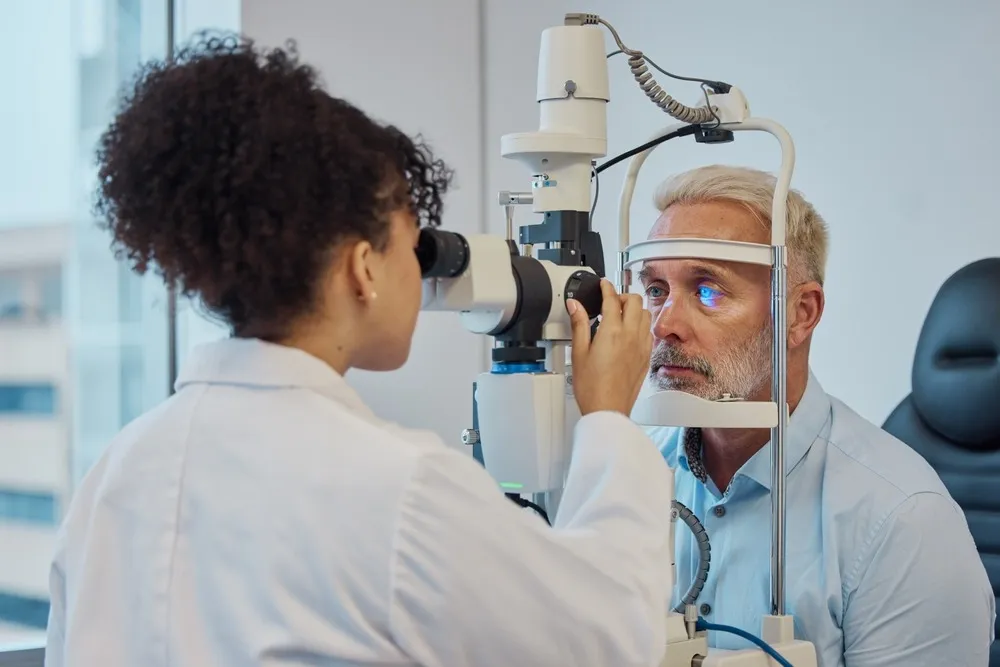An eye care routine is a set of daily and occasional practices designed to support your vision and overall eye wellness. These routines may include protective measures, cleaning strategies, adjusting personal habits, and visiting a professional to track changes over time. Developing a steady routine allows you to take a proactive approach to your eye health by addressing everyday risks and responding to changing needs as you age. Here are some tips for maintaining eye care:
Wear Protective Eyewear
Wearing protective eyewear offers a method to safeguard your eyes against the risk of injury. Everyday situations can pose potential hazards; lawn mowing, using power tools, or handling household chemicals can send particles or splashes toward your face. Wearing safety glasses or goggles creates a barrier in these situations.
Outdoor activities introduce additional reasons to protect your vision. Sports, such as tennis, baseball, or squash, have a higher potential for eye injuries. Sports goggles made with impact-resistant materials reduce the risk and also help maintain visibility throughout play. On worksites such as construction zones or laboratories, approved protective eyewear shields against flying debris and chemical exposure.
Sunlight presents another challenge for your eyes. Extended exposure to ultraviolet (UV) rays may harm sensitive tissues. Wearing sunglasses that offer 100% UV protection will filter out potentially damaging rays. Wraparound styles are effective since they block sunlight from multiple angles.
Care for Contact Lenses
Proper care for contact lenses involves paying attention to hygiene, storage, and daily lens usage. Begin by washing your hands thoroughly with soap and water, then dry with a lint-free towel before touching your lenses. This reduces the risk of transferring dirt, oils, or microorganisms present on your hands to your contacts.
When removing and storing your lenses, use fresh contact lens disinfecting solution. Topping off old solution or reusing it reduces its effectiveness and may introduce germs or buildup. Clean your lens case regularly with solution and allow it to air dry between uses. Rub and rinse your lenses with the solution, as this improves the removal of deposits. Follow the replacement schedule given by your eye doctor, whether you have daily, biweekly, or monthly lenses. Over-extending usage increases the risk of discomfort and complications.
Schedule Annual Eye Exams
An annual eye exam plays a key role in maintaining a balanced routine of eye care. Your vision changes throughout life, sometimes so gradually you might not detect it yourself. Regular appointments enable an optometrist to update your prescription for glasses or contacts and to check your overall eye health. During your exam, the optometrist performs several assessments, including:
- Measuring vision sharpness
- Checking peripheral sight
- Examining how your eyes work together
- Dilating your pupils to view the internal parts of your eye, revealing symptoms of underlying health issues
Some eye diseases like glaucoma progress slowly, making regular testing an effective way to notice changes early. Many professionals recommend scheduling these visits once a year, but your medical history, medications, or risk factors may require more frequent visits. Tracking your vision health also supports timely updates to your eyewear.
Visit an Optometrist for Eye Care
Protecting your eyes from hazards during activities, practicing contact lens management, and scheduling regular professional eye exams form a complete routine. If you have questions about maintaining your eye care routine or if you notice changes in your vision, an optometrist can provide guidance. Eye care professionals are available to explain different options, recommend protective gear, and help you adjust your habits as your daily needs change. Schedule your annual eye exam today.

